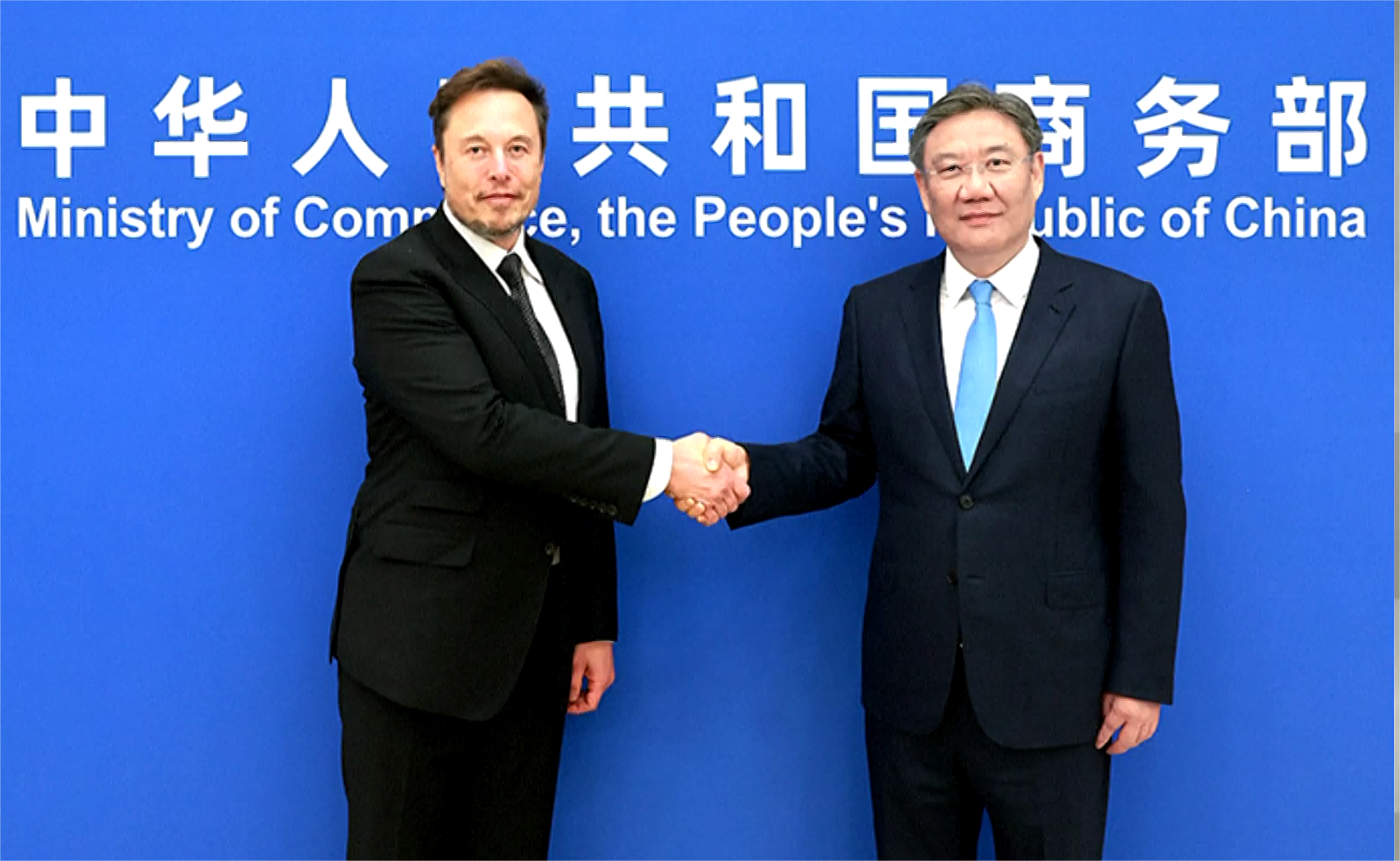
Chinese Commerce Minister Wang Wentao met with Elon Musk, CEO of Tesla, in Beijing on May?31, exchanging views on China-US economic and trade cooperation and Tesla's growth in China.?(PHOTO:?SCREENSHOT)
By GONG Qian
The term "de-risking" has evolved into a buzzword in recent months with some policymakers in the U.S. and Europe preferring this term to "decoupling," when emphasizing the relationship with China.
But how and when did de-risking go viral? Initially, European Commission President Ursula von der Leyen used it in a meeting in this March. "I believe it is neither viable - nor in Europe's interest - to decouple from China. Our relations are not black or white - and our response cannot be either. This is why we need to focus on de-risk - not decouple," said von der Leyen.
The term was soon echoed by other Western politicians. For example, U.S. National Security Advisor Jake Sullivan mentioned it in a speech at the Brookings Institution, saying that, "We are for de-risking and diversifying, not decoupling."
Later on, German Chancellor Olaf Scholz said in a speech to the European Parliament, "I agree with Ursula von der Leyen when she says no decoupling but a smart de-risking is the way to go."
So why are Western leaders comfortable to embrace de-risking? One reason is that "It gets them off a rhetorical hook," said Gideon Rachman, chief foreign affairs columnist for the Financial Times in one of his articles on the FT website. Rachman said talk of "decoupling" Western economies from China was often castigated as impossible and extreme, while "de-risking" sounds more prudent and targeted.
There is currently no definitive meaning of de-risking. "While decoupling is quite clear, de-risking is open to many interpretations," said Carl Bildt, former prime minister of Sweden, in his article published in Project Syndicate, a well-known international media organization.
"De-risking economic relations with China is a vague, poorly defined concept which may not be realistic and carries risks of its own."
Similarly, Rachman also pointed out that the nature of the risk is ambiguous. He further mentioned another two major difficulties: First, the clash between the interests of companies and countries. Second, the difficulty and expense of lessening dependencies on China.
However, while Western politicians are playing with words to reduce dependence on China, many big companies and top business leaders are flocking to China.
From March to May, Apple CEO Tim Cook, Tesla CEO Elon Musk, Goldman Sachs CEO David Solomon, HSBC CEO Noel Quinn and Standard Chartered boss Bill Winters were some influential names that touched down in China.
In June, chairman and CEO of LVMH Bernard Arnault arrived in China for his first visit to the country since the COVID-19 pandemic. "We are extremely hopeful and should benefit from a strong push from China in 2023," Jean-Jacques Guiony, CFO of LVMH, was quoted as saying by CNN.
Undoubtedly, visits by top businessmen to China show their strong confidence in the Chinese market. As the world is facing the common risk of rapidly deteriorating economic growth due to geopolitical tensions, the right way to deal with the risk should be cooperating with each other, rather than splitting the world.
But it seems the policy of decoupling or de-risking is preventing foreign countries from the second largest economy and the biggest consumer market.
Just like Chinese Premier Li Qiang said at the 2023 World Economic Forum in June, "It is businesses that are most sensitive and are in the best position to assess such risks. They should be left to come to their own conclusions and make their own choice."
Large language model, "Huashan", specifically applied in the aerospace field for the first time, was launched at the 2024 China Satellite Application Conference.
